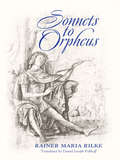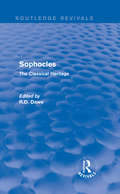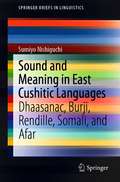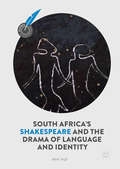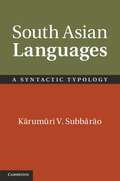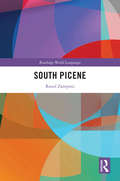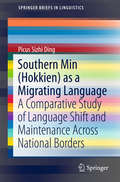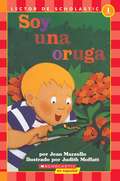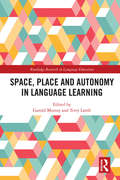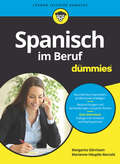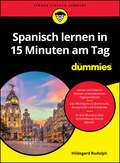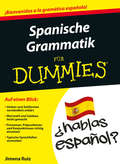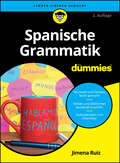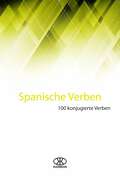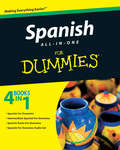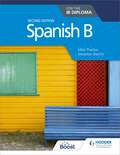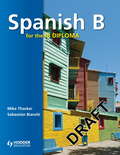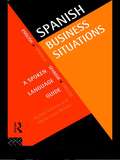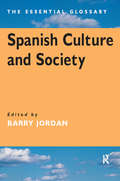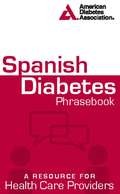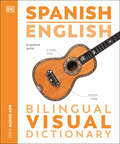- Table View
- List View
Sonnets to Orpheus: (bilingual Edition)
by Rainer Maria Rilke Daniel Joseph PolikoffCOMPOSED IN A BURST of inspiration near the end of the poet's life, Rilke's Sonnets to Orpheus represents the consummation of the writer's career, distilling the essence of his poetic wisdom in a gem-like sequence. This new translation--with the original German on facing pages--offers a clear window into the world of this endlessly scintillating cycle of poems. "Daniel Polikoff's English version of Rilke's last sonnet sequence, perhaps his greatest work, is wholly admirable. Rilke's late work is extremely difficult to penetrate. Both its conceptual nature and Rilke's unique use of the German language tend to resist interpretation. Astonishingly, Polikoff has found ways of rendering Rilke's complexities into English and also preserving his metrical and rhyme schemes. Such an accomplishment is possible only with a deep understanding of Rilke's vision and a knowledge of the root structure of German. Daniel Polikoff gives us Rilke in word and spirit in these splendid Sonnets."--LISEL MUELLER, National Book Award for Poetry (1981) for The Need to Hold Still; Pulitzer Prize for Poetry (1997) for Alive Together: New & Selected Poems "Daniel Polikoff is the first to achieve the unimaginable: an English translation which brings the form and content of these Sonnets together into an organic confluence. These new translations lift our understanding of Rilke's spiritual and aesthetic inspiration up to a whole different level, one accessible for the first time to the English reader. As a professor of German literature who has taught these sonnets for over thirty years, I can only thank Daniel Polikoff for this phenomenal accomplishment. His version should serve as the new standard for Rilke translations and belongs on the bookshelves of every poetry lover."--LUDWIG MAX FISCHER, author of Seasons of the Soul: The Poetic Guidance of Herman Hesse "This is a uniquely faithful, skillful, and eloquent translation of one of the greatest poems of the 20th century. I salute Daniel Polikoff and recommend his wonderful work to all seekers and lovers of poetry."--ANDREW HARVEY, author of Teachings of Rumi
Sophocles: The Classical Heritage (Routledge Revivals)
by Roger DaweSophocles: The Classical Heritage, first published in 1996, contains a diverse collection of reflection, ranging from the 16th century to the 20th, on one of the three great Attic tragedians, the author of perhaps the most famous play of all time. With the entire notion of ‘Western culture’ under duress, the need to establish continuity from antiquity to modernity is as pressing as ever. Each essay, selected by Professor Dawe, explores a theme or concept derived from the tragic vision of the Sophoclean universe which is still of relevance today. An enormous range of topics is investigated, in a variety of modes and styles: the linguistic challenges of translation, the psychology of Sigmund Freud, Enlightenment critiques, the history of performance conventions, dramatic structure and technique, and issues facing the modern director. Overall, Professor Dawe offers a staggering selection of responses, which cumulatively demonstrate the continuing importance and fascination of Sophocles’ legacy.
Sound and Meaning in East Cushitic Languages: Dhaasanac, Burji, Rendille, Somali, and Afar (SpringerBriefs in Linguistics)
by Sumiyo NishiguchiThis book, one of the few English language publications on indigenous languages spoken in East Africa, highlights theoretical contributions on understudied East Cushitic languages, based on extensive data. It introduces readers to important fields such as the OT phonology and morphology of Dhaasanac and discusses the syntax of negation, semantics of focus, negation and context shift. It then examines negative polarity items and context sensitivity in the Rendille, Burji, Somali and Afar languages to offer broader insights into these phenomena. Given its focus, the book will appeal to researchers and students who are interested in formal semantics, pragmatics and indigenous studies around the globe, especially those wanting to learn about East Cushitic linguistics.
South Africa's Shakespeare and the Drama of Language and Identity (Global Shakespeares)
by Adele SeeffThis volume considers the linguistic complexities associated with Shakespeare’s presence in South Africa from 1801 to early twentieth-first century televisual updatings of the texts as a means of exploring individual and collective forms of identity. A case study approach demonstrates how Shakespeare’s texts are available for ideologically driven linguistic programs. Seeff introduces the African Theatre, Cape Town, in 1801, multilingual site of the first recorded performance of a Shakespeare play in Southern Africa where rival, amateur theatrical groups performed in turn, in English, Dutch, German, and French. Chapter 3 offers three vectors of a broadening Shakespeare diaspora in English, Afrikaans, and Setswana in the second half of the nineteenth century. Chapter 4 analyses André Brink’s Kinkels innie Kabel, a transposition of Shakespeare’s The Comedy of Errors into Kaaps, as a radical critique of apartheid’s obsession with linguistic and ethnic purity. Chapter 5 investigates John Kani’s performance of Othello as a Xhosa warrior chief with access to the ancient tradition of Xhosa storytellers. Shakespeare in Mzansi, a televisual miniseries uses black actors, vernacular languages, and local settings to Africanize Macbeth and reclaim a cross-cultural, multilingualism. An Afterword assesses the future of Shakespeare in a post-rainbow, decolonizing South Africa. Global Sha Any reader interested in Shakespeare Studies, global Shakespeare, Shakespeare in performance, Shakespeare and appropriation, Shakespeare and language, Literacy Studies, race, and South African cultural history will be drawn to this book.
South Asian Languages
by Kārumūri V. SubbārāoSouth Asian languages are rich in linguistic diversity and number. This book explores the similarities and differences of about forty languages from the four different language families (Austro-Asiatic, Dravidian, Indo-Aryan (Indo-European) and Tibeto-Burman (Sino-Tibetan)). It focuses on the syntactic typology of these languages and the high degree of syntactic convergence, with special reference to the notion of 'India as a linguistic area'. Several areas of current theoretical interest such as anaphora, control theory, case and agreement, relative clauses and the significance of thematic roles in grammar are discussed. The analysis presented has significant implications for current theories of syntax, verbal semantics, first and second language acquisition, structural language typology and historical linguistics. The book will be of interest to linguists working on the description of South Asian languages, as well as syntacticians wishing to discover more about the common structure of languages within this region.
South Picene (Routledge World Languages)
by Raoul ZamponiSouth Picene is the pre-Roman language spoken in the Adriatic sector of central Italy. This book presents a description of what we know about the structure of this language. South Picene is (together with Umbrian, Oscan, Latin, and Faliscan) one of the few members of the Italic branch of the Indo-European family and is also one of the European languages with the oldest existing texts (550 BCE). Besides a grammatical outline of the language, the book contains the linguistic (and often stylistic) analysis of all the 21 inscriptions that compose the South Picene epigraphic corpus and a word list. South Picene will be of interest to students and scholars of Indo-European languages, Italic languages, and in general, ancient languages of the Italian peninsula.
Southern Min (Hokkien) as a Migrating Language
by Picus Sizhi DingThis book presents multilingualism as a social phenomenon, which arises when speakers of a different language move to a new society and learn to speak the dominant language of the society. It offers case studies of Hokkien migrating families when they encounter new languages in Burma, Macao and San Francisco, showing how a family changes across generations from monolingual to bilingual/multilingual and back to monolingual. In the process language shift occurs as a result of transitional bilingualism. The dynamic status of Hokkien is also attested at the societal level in Singapore, Taiwan and south Fujian, the homeland of Hokkien.
Space, Place and Autonomy in Language Learning (Routledge Research in Language Education)
by Garold Murray Terry LambThis book explores theories of space and place in relation to autonomy in language learning. Encompassing a wide range of linguistically and culturally diverse learning contexts, this edited collection brings together research papers from academics working in fourteen countries. In their studies, these researchers examine physical, virtual and metaphorical learning spaces from a wide range of theoretical and interdisciplinary perspectives (semiotic, ecological, complexity, human geography, linguistic landscapes, mediated discourse analysis, sociocultural, constructivist and social constructivist) and methodological approaches. The book traces its origins to the first-ever symposium on space, place and autonomy, which was held at the International Association of Applied Linguistics (AILA) 2014 World Congress in Brisbane. The final chapter, which presents a thematic analysis of the papers in this volume, discusses the implications for theory development, further enquiry, and pedagogical practice.
Spanisch im Beruf für Dummies (Für Dummies)
by Margarita Görrissen Marianne Häuptle-BarcelóSie müssen auf Spanisch mit Ihren Kollegen, Kunden und Geschäftspartnern kommunizieren? Wenn Sie dieses Buch gelesen haben, werden Sie entspannt Telefongespräche auf Spanisch führen und Geschäftskorrespondenz jeglicher Art auf Spanisch verfassen. Sie erfahren, wie Sie sich bei Besprechungen und Verhandlungen von Ihrer besten Seite zeigen und lernen den Small Talk beim Networking zu beherrschen. Die Autorinnen geben Ihnen Tipps, nennen Ihnen die wichtigsten Redewendungen und erläutern kulturelle Gepflogenheiten in Spanien und Lateinamerika. So tauchen Sie ganz leicht in die spanischsprachige Geschäftswelt ein.
Spanisch lernen in 15 Minuten am Tag für Dummies (Für Dummies)
by Hildegard RudolphNur ein Viertelstündchen Spanisch am Tag Sie wollen Spanisch lernen, ohne stundenlang Vokabeln und Grammatik zu pauken? Dann ist dieses Buch genau das Richtige für Sie! In auf 15 Minuten pro Tag begrenzten Lektionen bringt es Ihnen die spanische Sprache näher. So erfahren Sie im Handumdrehen alles Wichtige über Grammatik und Aussprache und erweitern Ihren Wortschatz. Mit regelmäßigen Wiederholungsfragen können Sie Ihr Wissen testen. Zum Download verfügbares Audiomaterial rundet die Lektionen ab. So werden Sie, wenn Sie nach drei Monaten das Buch durchgearbeitet haben, in der Lage sein, sich auf Spanisch zu verständigen. Sie erfahren Wie Sie in jeder Situation die richtigen Worte finden Mit welchen Redewendungen Sie brillieren Welche Wörter Sie nicht verwechseln sollten Wie Sie das Spanische richtig aussprechen
Spanische Grammatik für Dummies (Für Dummies)
by Jimena RuizMit Übungsaufgaben samt Lösungen und Konjugationstabellen der wichtigsten Verben Grammatik ist nicht jedermanns Sache und die spanische Grammatik macht es einem auch nicht immer leicht. Jimena Ruiz unterrichtet seit vielen Jahren Spanisch. Sie kennt die Nöte der Lernenden und die Fallen der spanischen Grammatik, in die sie häufig hineintappen. Leicht verständlich, mit einer Prise Humor und anhand vieler Beispiele und Informationen zu Land und Leuten erklärt sie alles über Artikel und Pronomen, Adjektive und Adverbien, Fragestellung und Verneinung, die Zeiten und die Satzstellung. Am Ende eines jeden Kapitels gibt es Übungen, die das Gelernte noch einmal wiederholen. Tabellen der wichtigsten spanischen Verben bieten ganz Eiligen alle Konjugationen auf einen Blick. So sind Sie für den nächsten Test gerüstet, können mit Ihren spanischen Kollegen über zukünftige Projekte sprechen oder einfach nur unbeschwert im Spanienurlaub parlieren.
Spanische Grammatik für Dummies (Für Dummies)
by Jimena RuizDamit kommt Ihnen nichts mehr Spanisch vor! Grammatik ist nicht jedermanns Sache und die spanische Grammatik macht es einem nicht immer leicht. Jimena Ruiz unterrichtet seit vielen Jahren Spanisch und kennt die Fallen der spanischen Grammatik. Leicht verständlich und anhand vieler Beispiele und Informationen erklärt sie alles über Artikel und Pronomen, Adjektive und Adverbien, Fragestellung und Verneinung, die Zeiten und die Satzstellung. Viele Übungen – im Buch und online – und Konjugationstabellen runden das praxisorientiere Buch ab. So sind Sie für den nächsten Test gerüstet und können im Urlaub unbeschwert parlieren. Sie erfahren Wie Sie Nomen, Begleiter und Adjektive richtig einsetzen Wie Sie Fragen richtig stellen Wie Sie typische Sprachfallen zwischen Deutsch und Spanisch erkennen können
Spanische Verben: 100 Verben Serie - Band 3
by Editorial KaribdisNachschlagewerk zur Konjugation der 100 wichtigsten spanischen Verben, besonders geeignet für elektronische Geräte. Zunächst wird in der Einleitung die Bildung aller spanischenTempora erklärt, im Anschluss werden 100 wichtigen Verben mit Übersetzung vorgestellt. Das Buch ist ohne Bildmaterial konzipiert, damit der Leser leicht entsprechende Textstellen finden kann.
Spanish 1 nuevos amigos!
by Kasperek AmosBJU Press' Spanish 1 Student Textbook is a brightly colored text that will help students learn to communicate in Spanish. At the beginning of each chapter, objectives are listed. Lessons feature vocabulary that's presented in context with labeled artwork and translations of the labeled items at the bottom of the page. Written conversations help you learn language in context with comprehension questions focused on meaning; charts are used to present verb forms. <p><p>Two cultural articles are also provided, along with discussion questions designed to help students think critically about cultural issues from a biblical worldview. Activities are included throughout, and chapters end with a self-evaluation form to determine how well the objectives have been met.
Spanish All-in-One For Dummies
by The Experts at For DummiesA value-packed guide to speaking, reading, and writing in Spanish Spanish All-in-One For Dummies is the first Dummies All-in-One title in the foreign language category–nearly 800 pages of expert instruction to help people master Spanish basics and beyond. This comprehensive volume features content from all For Dummies Spanish language instruction titles, including Spanish For Dummies, Intermediate Spanish For Dummies, Spanish Verbs For Dummies, and Spanish For Dummies Audio Set. The book's audio CD provides readers with an effective tool to help them start speaking Spanish from day one. Plus, the practical exercises give readers greater confidence in communicating in Spanish, whether traveling or in business.
Spanish B for the IB Diploma Second Edition
by Mike Thacker Sebastian BianchiExam board: International BaccalaureateLevel: IB DiplomaSubject: SpanishFirst teaching: September 2018First exams: Summer 2020Develop competent communicators who can demonstrate a sound conceptual understanding of the language with a flexible course that ensures thorough coverage of the updated Spanish B Guide and is designed to meet the needs of all IB students at Standard and Higher Level.- Empower students to communicate confidently by exploring the five prescribed themes through authentic texts and skills practice at the right level, delivered in clear learning pathways. - Ensure students are able to produce coherent written texts and deliver proficient presentations with grammar and vocabulary introduced in context and in relation to appropriate spoken and written registers. - Improve receptive skills with authentic written texts, audio recordings spoken at a natural pace, and carefully crafted reading and listening tasks.- Promote global citizenship, intercultural understanding and an appreciation of Hispanic cultures through a wide range of text types and cultural material from around the world. - Deliver effective practice with a range of structured tasks within each unit that build reading, listening, speaking and writing skills.- Establish meaningful links to TOK and CAS, and identify learner profile attributes in action.The audio for the Student Book is FREE to download from www.hoddereducation.com/ibextras
Spanish B for the IB Diploma Second Edition
by Mike Thacker Sebastian BianchiExam board: International BaccalaureateLevel: IB DiplomaSubject: SpanishFirst teaching: September 2018First exams: Summer 2020Develop competent communicators who can demonstrate a sound conceptual understanding of the language with a flexible course that ensures thorough coverage of the updated Spanish B Guide and is designed to meet the needs of all IB students at Standard and Higher Level.- Empower students to communicate confidently by exploring the five prescribed themes through authentic texts and skills practice at the right level, delivered in clear learning pathways. - Ensure students are able to produce coherent written texts and deliver proficient presentations with grammar and vocabulary introduced in context and in relation to appropriate spoken and written registers. - Improve receptive skills with authentic written texts, audio recordings spoken at a natural pace, and carefully crafted reading and listening tasks.- Promote global citizenship, intercultural understanding and an appreciation of Hispanic cultures through a wide range of text types and cultural material from around the world. - Deliver effective practice with a range of structured tasks within each unit that build reading, listening, speaking and writing skills.- Establish meaningful links to TOK and CAS, and identify learner profile attributes in action.The audio for the Student Book is FREE to download from www.hoddereducation.com/ibextras
Spanish B for the IB Diploma Second Edition
by Mike Thacker Sebastian BianchiExam board: International BaccalaureateLevel: IB DiplomaSubject: SpanishFirst teaching: September 2018First exams: Summer 2020Develop competent communicators who can demonstrate a sound conceptual understanding of the language with a flexible course that ensures thorough coverage of the updated Spanish B Guide and is designed to meet the needs of all IB students at Standard and Higher Level.- Empower students to communicate confidently by exploring the five prescribed themes through authentic texts and skills practice at the right level, delivered in clear learning pathways. - Ensure students are able to produce coherent written texts and deliver proficient presentations with grammar and vocabulary introduced in context and in relation to appropriate spoken and written registers. - Improve receptive skills with authentic written texts, audio recordings spoken at a natural pace, and carefully crafted reading and listening tasks.- Promote global citizenship, intercultural understanding and an appreciation of Hispanic cultures through a wide range of text types and cultural material from around the world. - Deliver effective practice with a range of structured tasks within each unit that build reading, listening, speaking and writing skills.- Establish meaningful links to TOK and CAS, and identify learner profile attributes in action.The audio for the Student Book is FREE to download from www.hoddereducation.com/ibextras
Spanish B for the IB Diploma Student's Book
by John Bates Mike Thacker Sebastian BianchiDevelop confident linguists, who appreciate other cultures with this course, based closely around the IB's desired learner profile.This text caters for Language B - students learning Spanish as a second language at Standard and Higher levels. It includes a starter unit to help bridge the gap from pre-16 exams into the distinctive requirements of the IB Diploma. - Builds language skills through carefully crafted tasks and grammar practice- Improves exam performance with activities for all aspects of IB Spanish assessment- Promotes global citizenship and an appreciation of Hispanic culture through stimulus material, including a particular emphasis on the Americas
Spanish Business Situations: A Spoken Language Guide (Business Situations Ser.)
by Michael Gorman Maria-Luisa HensonSpanish Business Situations is a handy reference and learning text for all who use or need spoken Spanish for business. Over 40 situations are simply presented, including * basic phone calls * leaving messages * making presentations * comparing, enquiring, booking * selling techniques With full English translations and usage note, Spanish Business Situations will help you to communicate confidently and effectively in a broad range of everyday business situations.
Spanish Culture and Society: The Essential Glossary (The\essential Glossary Ser.)
by Barry JordanFirst published in 2002. Routledge is an imprint of Taylor & Francis, an informa company.
Spanish Diabetes Phrasebook
by American Diabetes AssociationThe only Spanish-English resource to help you communicate with your patients with diabetesWith more and more physicians, clinicians, educators, and administrators working with Latino and Hispanic patients, ensuring accurate communication is more important than ever. This handy pocket reference offers the Spanish equivalents to common phrases you use every day. From patient introductions to medical histories, examinations, and follow-up, you can provide a more trusting environment and quality care by engaging patients directly.Phrases are divided into nine, natural groups for ease of use. A glossary of related terms is included, Diabetes Spanish Phrasebook provides accurate communication, critical in all aspects of medical diagnosis, education, and general diabetes care to help you communicate more effectively with your Spanish-speaking patients.Written by the experts at the American Diabetes Association, the nation's leading voluntary health organization supporting diabetes research, information, and advocacy and the leading publisher of comprehensive diabetes information.Topics include:Greeting and IntroductionIdentifying the PatientMedications and AllergiesChief Complaint (CC)History of Present IllnessPast Medical HistoryReview of SystemsExaminationFollow-Up and PlanList of Relevant Terms
Spanish English Bilingual Visual Dictionary (DK Bilingual Visual Dictionaries)
by DKWith more than 6,750 fully illustrated words and phrases in Spanish and English, along with a free bilingual audio app, DK’s Spanish-English Bilingual Visual Dictionary is your essential companion to life in any Spanish-speaking country.You will learn all the words and phrases you need to buy food and clothes, talk about work and education, visit the doctor, go to the bank, use public transportation, and much more. Perfect for tourists, business travelers, and students, the dictionary is incredibly easy to follow, with thematically organized vocabulary so you can find closely related words on a particular topic. Words and phrases are illustrated with full-color photographs and artwork, helping to cement new vocabulary in your mind. A comprehensive, two-way index provides an instant reference point for new Spanish vocabulary.The supporting audio app enables you to hear all the words and phrases spoken out loud in Spanish. The app is easy to use and helps you learn, remember, and pronounce important vocabulary. The dictionary gives a pronunciation guide for every Spanish word, and you can use this alongside the app to perfect your pronunciation.
